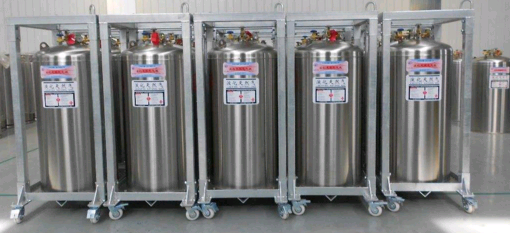A few of the bottled gases are chemically unstable, easy to decompose or polymerize, and may explode as a result. For example, sulfur hexafluoride, silicon fluoride, trimethylamine, phosgene, hydrogen cyanide, etc. will undergo decomposition reaction when exposed to moisture or water; Butadiene, hydrogen chloride, etc. will polymerize under the action of thermal and pyrotechnic catalysts; Hydrogen chloride is easy to polymerize into melamine chloride when it is stored in a static state; Ethylene oxide (ethylene oxide) has the characteristics of decomposition and polymerization, especially when it contacts with anhydrous chlorides of iron, tin and aluminum, pure oxides of iron and aluminum, and hydroxides of alkali metals, or when the storage temperature is higher than 32 ℃, severe displacement reaction or polymerization reaction will occur. Although material decomposition is usually endothermic, there are exceptions. For example, acetylene decomposition is exothermic, that is, it emits all the energy when carbon and hydrogen form acetylene, which can cause decomposition explosion.

The energy of chemical explosion conversion of substances depends on the exothermic property of the process, the high speed of the process and the existence of gaseous (vapor) reaction products. As long as these three elements exist at the same time, the phenomenon can be explosive. Therefore, when designing gas cylinder storage, filling and transportation facilities, or in the process of storage, transportation and use of gas cylinders, the chemical stability of the gas must be taken into account, and the necessary physical, chemical and safety data must be mastered.